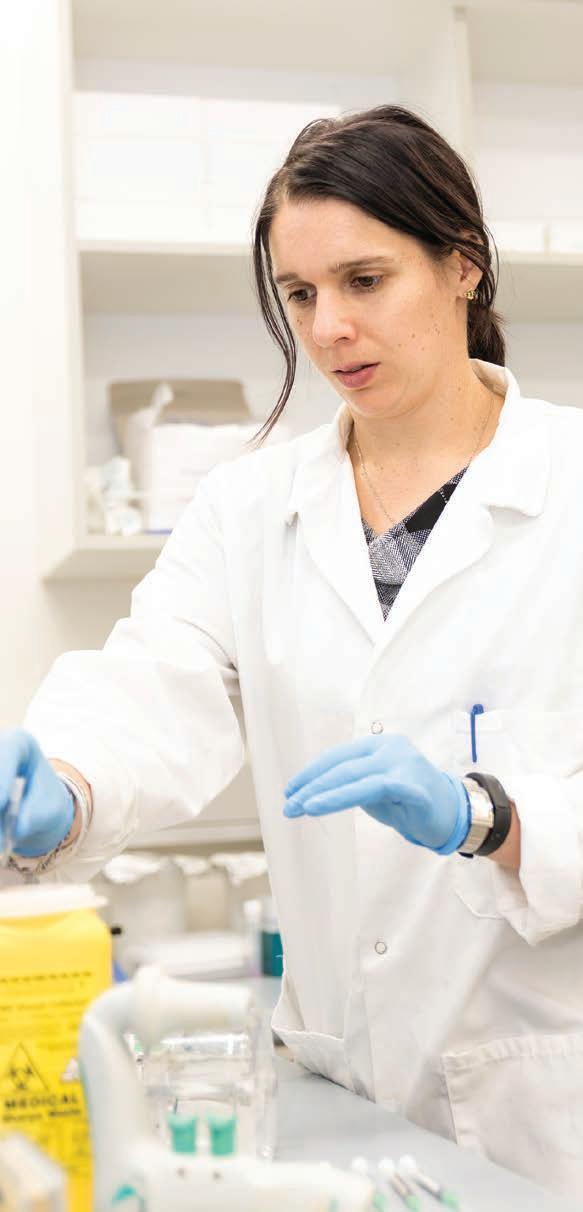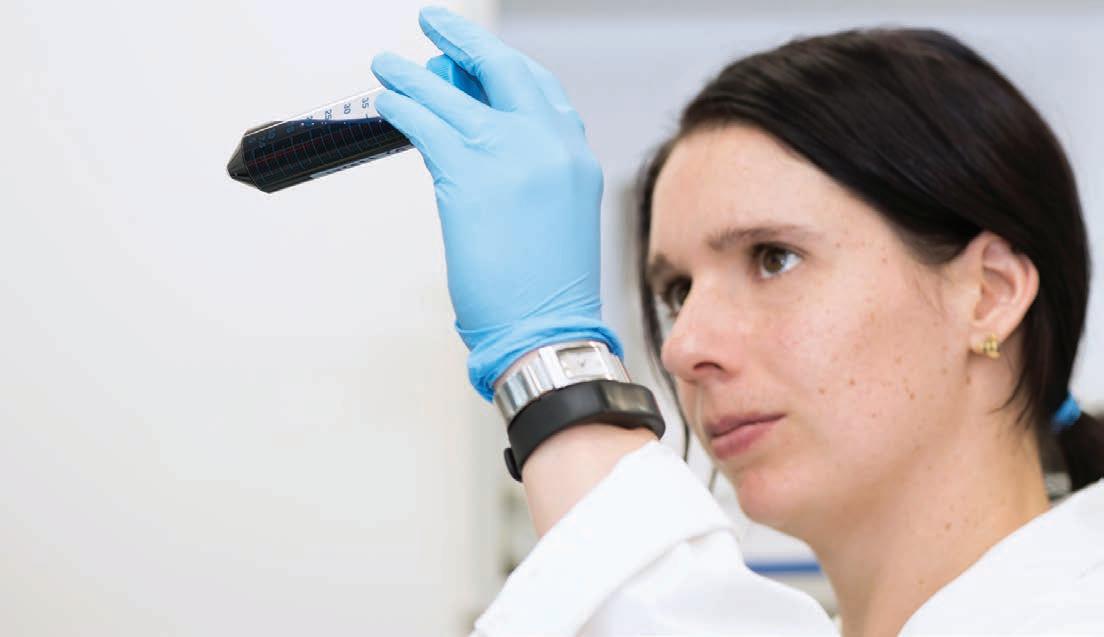
5 minute read
New Thinking
FARMERS WEEKLY – farmersweekly.co.nz – May 16, 2022 17
Researcher digs up magic compounds in NZ produce
Plant and Food Research scientist Dr Odette Shaw admits she lacks green thumbs when it comes to growing the key subjects of her work, fruit and vegetables. However, what she lacks in horticultural skills she has more than made up for by lifting the lid on the compounds that make fruit and vegetables even better for us than we originally thought. She spoke to Richard Rennie.
DR ODETTE Shaw’s work on understanding some of the valuable compounds in the likes of raspberries and boysenberries traces back to her early career work studying the human respiratory system.
“Working in respiratory health and studying the lungs provided an insight to one of the biggest capillary networks in the body, and they provide a good means to look at what happens to components when they enter the blood supply.”
She enjoyed the concepts of food as a source of compounds with the natural ability to influence the body’s respiration, immune function, and inflammation pathways.
A key part of her work over the past decade has been studying how compounds found largely in berries can help improve lung function and health.
In a country like New Zealand where the incidence of asthma is among the highest in the western world, her work has become particularly relevant. This is even more so after a global respiratory pandemic continues to wreak havoc on health.
Some of the key compounds she is studying are polyphenols, chemicals that occur naturally in plants and are also found in the likes of teas and spices.
“The ones most known to people would be the anthocyanins, the compounds that give us the red, blue and purple colours you find in the likes of blueberries and red cabbage.”
Her research has already prompted the launch of an ingredients venture with New Zealand company Anagenix Ltd, based around the unique blend of polyphenols found in boysenberries and apples.
BerriQi is a patented consumer product containing polyphenols.
Originally, BerriQi was developed for consumers who live in high pollution areas concerned about protecting their lungs from damage.
Her research continues to provide science-based evidence to further develop the BerriQi product range and support the marketing strategy.
The evidence from her research programme has been key to successfully patenting BerriQi and raising the demand from consumers in Asia, Europe, North America, South America and the Pacific.
Prior to the disruptions caused by the pandemic, Shaw and her colleagues were planning a comparative study between Chinese consumers and NZ subjects, looking at the effects of using the product when under air pollution stress.
Her work is highlighting a common theme through NZ-grown produce that researchers are starting to recognise.
This is a growing appreciation of the compounds occurring in plants that result in health and wellness effects that could be used to market products.
One example is blackcurrant research work that has been looking at the specific effects of New Zealand-grown blackcurrants on sports and mental performance, and using this scientific data in the marketing of extracts and products.
But gaining regulatory approval to make a claim about a food product’s wellbeing properties, such as the one Green kiwifruit garnered for digestive health several years ago, is a tough road to go down.
“It is a lot of work and expense to show you have a food product that can have beneficial effects, not all can afford the R&D that sits behind these sorts of claims.”
She has also been involved with the Rubus breeding programme, developing a method for high-speed screening of fruit samples, identifying those that may exhibit anti-inflammatory or immunity-enhancing properties.
Shaw says the most interesting aspect of her work is the collaboration, not only with the likes of Zespri and Anagenix, but along the complex chain that sees a berry, fruit or vegetable breed ultimately become a commercial venture.
“You can find that the practicalities of growing a particular crop that may have some particularly valuable compounds, are not easily achieved. Or it may be that crop has the compounds but has a particularly poor taste profile.”
One promising project involves a species of raspberry exhibiting good disease resistance, growing characteristics and taste profile.
But the extraction of bioactive and beneficial compounds does not have to necessarily be limited to the freshest, highest quality fruit.
Extraction from lower grade fruit or rejects holds plenty of promise for helping reduce the mountain of food waste quality standards can generate.
“It doesn’t matter if it’s not pretty, it can be dried, powdered and used as an ingredient across a range of uses including supplements and cosmetics.”
Ultimately her work is testament to the “5-plus a day” mantra being even more significant than simply using fruit and vegies as a source of basic vitamins and fibre.
“This work is a way to identify valuable components from plants we are good at growing, and many successful health and wellness products and compounds could ultimately come from plantbased sources.”

LAYERS: Dr Odette Shaw’s work is helping unravel more layers of high value, nutritionally-important compounds in NZ-grown produce.
Agrievents
AWDT Next Level 2022 Food & fi bre women – are you ready to lead change for the people and places you care about? To step-up and make change happen, join our friends @AgriWomensDevelopmentTrust on Next Level - a six-month leadership and governance programme for developing the confi dence, skills and connections to inspire others. Connect with your cohort of aspiring food & fi bre leaders, grow through individual executive coaching, build a leader mindset and set your action plan to make change happen. Learn more and register at www.awdt.org.nz/ next-level/ Next Level will run in: Wairarapa 17, 18, 19 May and 27, 28, 29 September Online 28, 29 July and 19, 20 October Christchurch 7, 8, 9 June and 1, 2, 3 November
DigitalAg DigitalAG 2022 brings together technology leaders, agritech developers, early adopters and the next generation of primary industry operators. This event showcases the digital technologies transforming the agricultural and horticultural sectors. Formally MobileTECH Ag, this is a must-attend event for NZ’s agritech community. Venue: Distinction Hotel & Conference Centre, Fenton Street, Rotorua To register: agritechnz.org.nz/event/digitalag/









